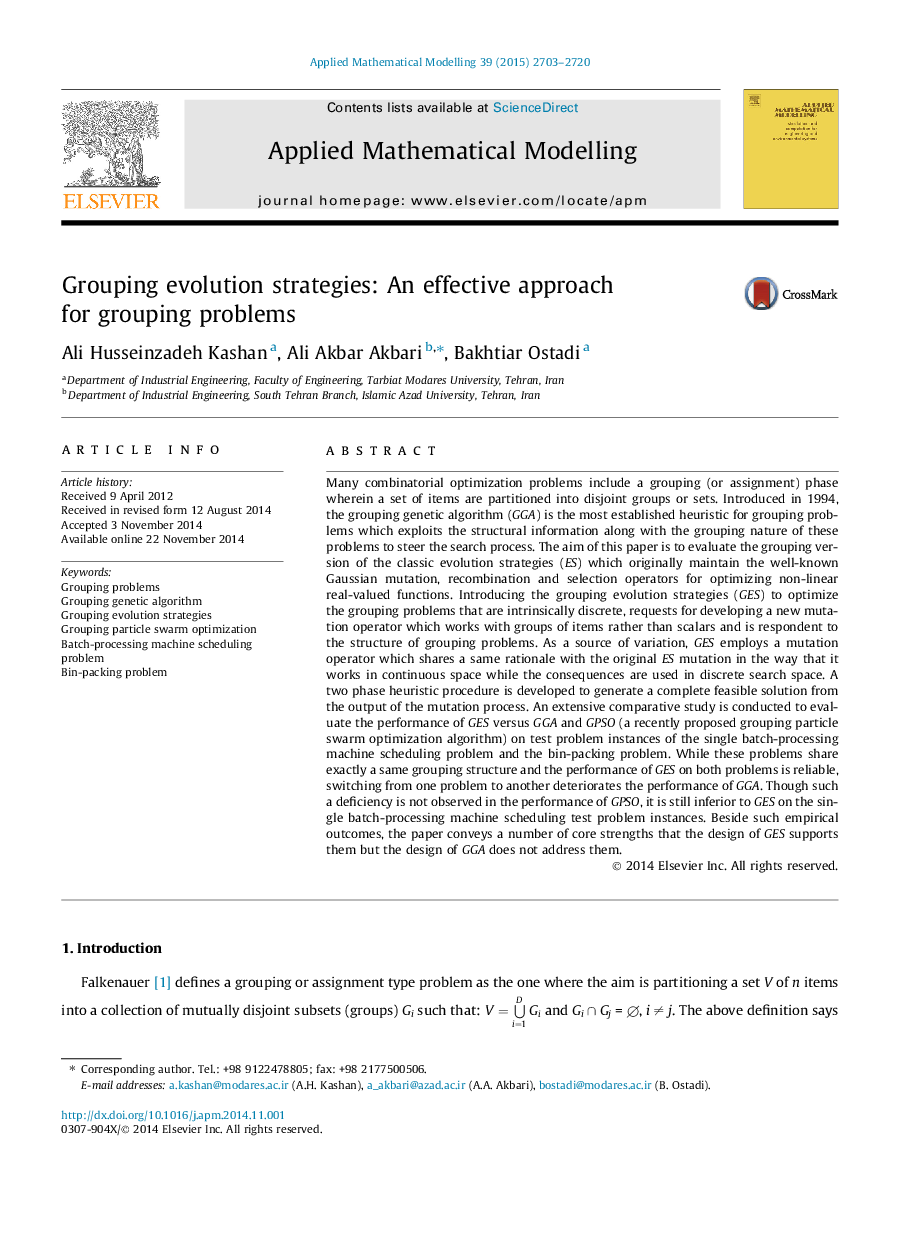| Article ID | Journal | Published Year | Pages | File Type |
|---|---|---|---|---|
| 1703911 | Applied Mathematical Modelling | 2015 | 18 Pages |
Many combinatorial optimization problems include a grouping (or assignment) phase wherein a set of items are partitioned into disjoint groups or sets. Introduced in 1994, the grouping genetic algorithm (GGA) is the most established heuristic for grouping problems which exploits the structural information along with the grouping nature of these problems to steer the search process. The aim of this paper is to evaluate the grouping version of the classic evolution strategies (ES) which originally maintain the well-known Gaussian mutation, recombination and selection operators for optimizing non-linear real-valued functions. Introducing the grouping evolution strategies (GES) to optimize the grouping problems that are intrinsically discrete, requests for developing a new mutation operator which works with groups of items rather than scalars and is respondent to the structure of grouping problems. As a source of variation, GES employs a mutation operator which shares a same rationale with the original ES mutation in the way that it works in continuous space while the consequences are used in discrete search space. A two phase heuristic procedure is developed to generate a complete feasible solution from the output of the mutation process. An extensive comparative study is conducted to evaluate the performance of GES versus GGA and GPSO (a recently proposed grouping particle swarm optimization algorithm) on test problem instances of the single batch-processing machine scheduling problem and the bin-packing problem. While these problems share exactly a same grouping structure and the performance of GES on both problems is reliable, switching from one problem to another deteriorates the performance of GGA. Though such a deficiency is not observed in the performance of GPSO, it is still inferior to GES on the single batch-processing machine scheduling test problem instances. Beside such empirical outcomes, the paper conveys a number of core strengths that the design of GES supports them but the design of GGA does not address them.
